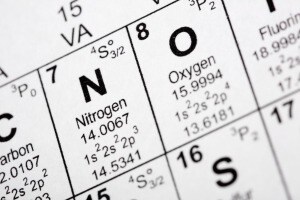Should You Fill Your Car's Tires With Nitrogen?
 Edmunds.com
Member, Administrator, Moderator Posts: 10,316
Edmunds.com
Member, Administrator, Moderator Posts: 10,316
 Should You Fill Your Car's Tires With Nitrogen?
Should You Fill Your Car's Tires With Nitrogen?
Some car dealerships and tire chains claim that filling your tires with nitrogen will save you money on gas, not to mention offer better performance than air. But is this true?
Tagged:
0

Comments
In theory, tire pressure monitor sensors would cover most of your issues. In real life, few TPMS systems offer real time read outs of each tire and many only illuminate the idiot light when the psi falls to a preset amount. Meanwhile you are driving around on tires that aren't optimally inflated.
With that being said, I have my own air compressor at home, and I installed an in-line line dryer, which removes moisture from the air... Since I did this, I only have a couple pound variance with termperature in my tires, unlike before when I filled with gas station air... (Last time I got gas station air, if I sprayed my hand with air, my hand became covered in water....)
The Sandman
2023 Hyundai Kona Limited AWD (wife) / 2025 VW GTI (me) / 2019 Chevrolet Cruze Premier RS (daughter #1) / 2020 Hyundai Accent SE (daughter #2) / 2023 Subaru Impreza Base (son)
I had nitrogen put in and the fluctuation dropped to 6 psi under the same conditions. This makes sense when you use the ideal gas law. You should only see about a 2% to 3% change in tire pressure for every 10 degrees of temperature change. The large pressure fluctuation is caused by vapor pressure from moisture inside the tire. Dry air will also fix this issue, it doesn't need to be nitrogen. Any shop with tools should have a dry air source. Just have them drain and refill your tires a couple of times with dry air if you're having problems like the ones I described above.
Generally, cars with low profile tires designed for performance will be affected the most. Their volume doesn't change much due to the stiff construction of the tire, and the grip of the tire causes more friction and heat during operation. Most trucks, SUV's, and regular vehicles won't benefit much from dry air / nitrogen. However, don't let people tell you it's a myth. There are too many variables going on for the average idiot to understand. Just because Bubba's farm truck never had an issue doesn't mean your Mercedes won't.
The Sandman
2023 Hyundai Kona Limited AWD (wife) / 2025 VW GTI (me) / 2019 Chevrolet Cruze Premier RS (daughter #1) / 2020 Hyundai Accent SE (daughter #2) / 2023 Subaru Impreza Base (son)
https://en.wikipedia.org/wiki/Boyle's_law
First, not only is there an Ideal Gas Law, there is also the Law of Partial Pressure of Gases - which states that you can treat a mixture of gases as though they were not mixed. So the pressure at sea level for oxygen in air is 3.1 psi (14.7 X 21% = 3.1) AND if you fill a tire with 100% N2, that 3.1 psi O2 will be trying leak back INTO the tire. This has been demonstrated to occur. So you can not keep a 100% N2 mixture in a tire.
Second, water vapor behaves like a gas (which is what it is), so unless there is liquid water in the tire, the inflation pressure follows the Ideal Gas Law.
Further, water vapor can diffuse through the tire just like N2 and O2 do, so eventually there will be no water in the tire. As proof, I offer that when tires are removed from service, you don't find puddles of water inside, even though they may have used liquid mounting lube when mounted.
My money's on that it doesn't make any difference at all.
The Sandman
2023 Hyundai Kona Limited AWD (wife) / 2025 VW GTI (me) / 2019 Chevrolet Cruze Premier RS (daughter #1) / 2020 Hyundai Accent SE (daughter #2) / 2023 Subaru Impreza Base (son)
No one around here charges extra for it.
Edmunds Price Checker
Edmunds Lease Calculator
Did you get a good deal? Be sure to come back and share!
Edmunds Moderator
The Sandman
2023 Hyundai Kona Limited AWD (wife) / 2025 VW GTI (me) / 2019 Chevrolet Cruze Premier RS (daughter #1) / 2020 Hyundai Accent SE (daughter #2) / 2023 Subaru Impreza Base (son)